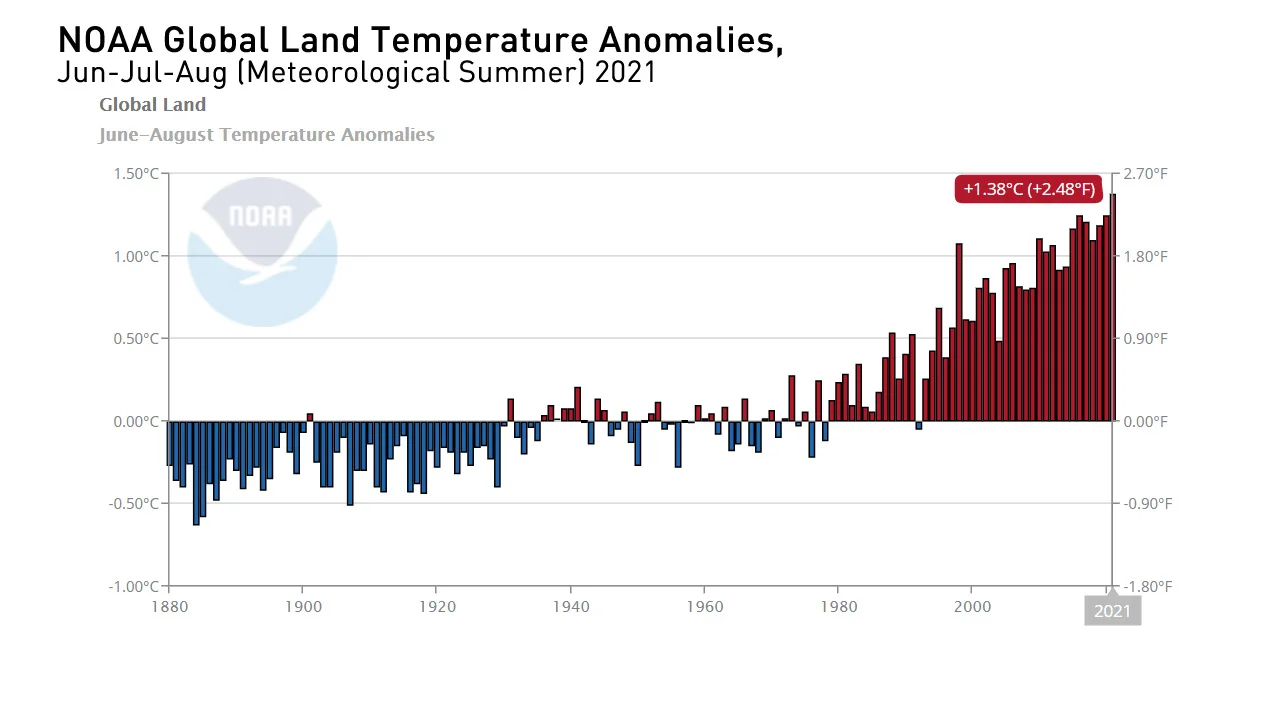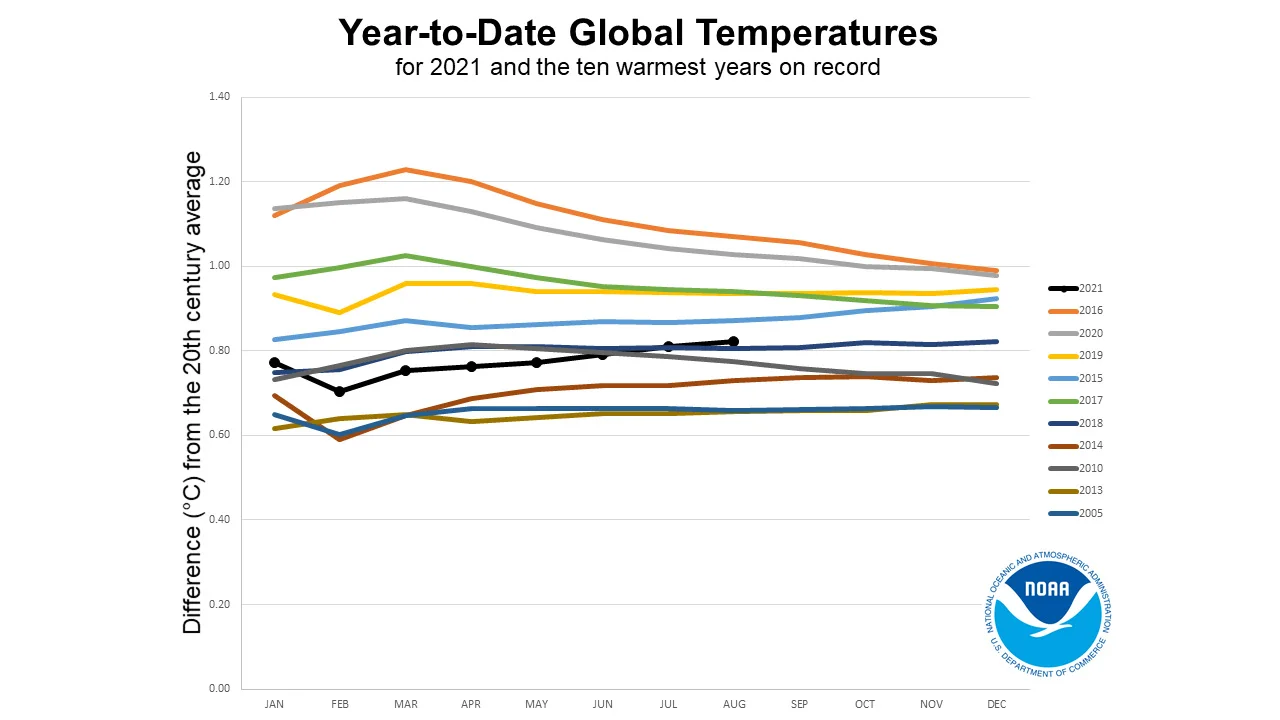
August capped the hottest meteorological summer on record for Earth's continents
With temperatures reaching record highs for residents of the northern hemisphere, last month joins a triumvirate of the three hottest Augusts in the record books.
The latest tally of temperatures around the globe have placed August 2021 among the hottest months of August on record, while also closing out the hottest summer on Earth's continents we've seen so far.
Just one month after we lived through the hottest month ever recorded, the National Oceanic and Atmospheric Administration (NOAA) has logged August 2021 with an average global temperature of 0.9°C above the 20th century average. That makes it the sixth hottest month of August for the planet since record-keeping began 142 years ago. Based on their records, NASA agrees, but other agencies place it even higher in their standings. The Japanese Meteorological Agency (JMA) ranks it as 4th hottest (tied with August 2020), and Europe's Copernicus Climate Change Service says that it was actually 3rd warmest (tied with August 2017).
In addition, NOAA's report says that August capped a record-hot meteorological summer (June, July, and August, combined) across Earth's continents, beating out Summer 2016 by more than a tenth of a degree Celsius.

Meteorological summer temperature anomalies from 1880-2021. Credit: NOAA
Factoring in both land and ocean temperatures, though, NOAA says the season was tied with Summer 2019 as the 2nd hottest meteorological summer for the northern hemisphere. It was the 4th hottest summer, overall, for the globe.
Meteorological seasons differ slightly from the typical astronomical seasons we observe. Astronomical seasons track Earth's position relative to the Sun. So, they begin on the March equinox, the June solstice, the September equinox, and the December solstice. Since these dates occur towards the end of their respective month, the seasons don't match up perfectly with our calendar. On the other hand, meteorological seasons do line up with our calendar. This makes them of consistent length for comparison, and more easily tallied up by referencing monthly weather records. Winter is the coldest three months (December 1 to February 28/29) and summer is the hottest three months (June 1 to August 31). The two transition seasons fill in the gaps, with March 1 to May 31 as spring and September 1 to November 30 as fall.
Regionally, NOAA's report ranked August 2021 as the second-warmest August on record for Asia, and the third-warmest for Africa. Meanwhile, over North America, South America, and Oceania, the month ranked among the top-10 warmest months of August. Across Europe, NOAA ranks this as the coolest August since 2008, but Copernicus' data tells a different story. They say it placed as the warmest month of August in their records, beating out the previous warmest (a tie between 2010 and 2018) by a narrow margin.
Globally, nine of the 10 warmest Augusts have occurred since 2009, according to NOAA. Under the influence of one of the strongest El Niño events ever recorded, August 1998 still rounds out their complete top-10 list.

This graph compares year-to-date temperature anomalies for 2021 (black line) to the ten warmest years on record. Each month along each trace represents the year-to-date average temperature anomaly. In other words, the January value is the January average temperature anomaly, the February value is the average anomaly of both January and February, and so on. Credit: NOAA NCEI
Based on monthly temperatures so far this year, 2021 stands little chance of ranking within the top five hottest years. However, it is certain to count among the top-10 in the record books.







